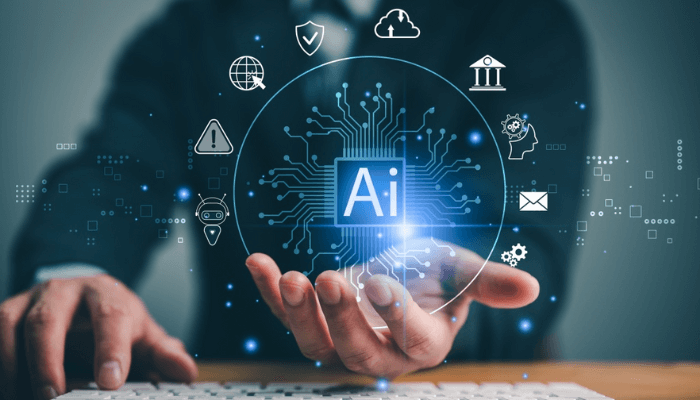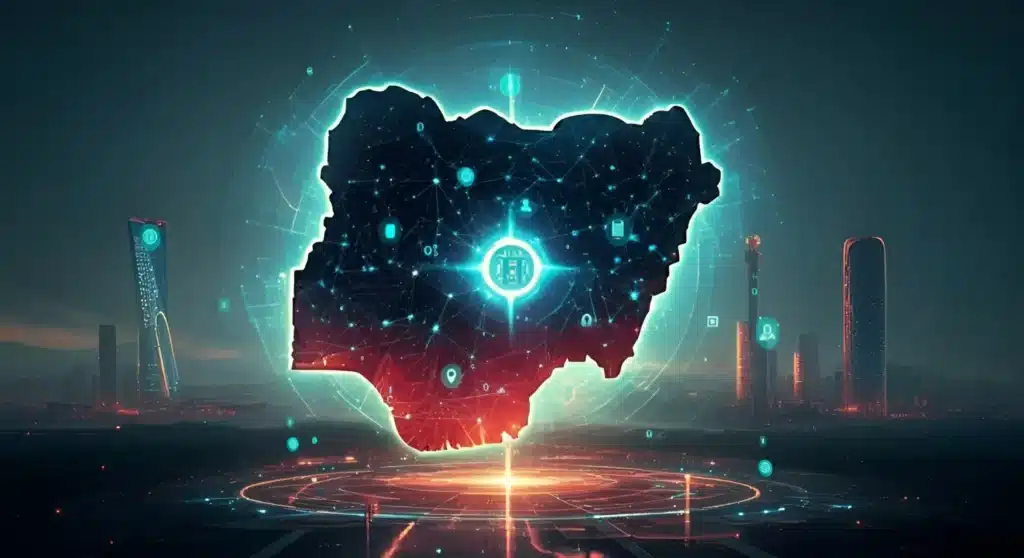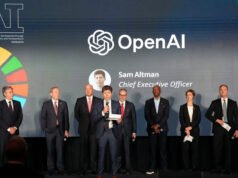Nigeria stands at a pivotal technological crossroads. With the global wave of artificial intelligence (AI) sweeping across sectors from agriculture to health, the country is positioning itself not as a mere follower but as a determined participant in the race. Recent policy documents, ecosystem reports and corporate initiatives show that the journey from ambition to implementation is underway.
On 19 September 2025, the National Information Technology Development Agency (NITDA) published the country’s National Artificial Intelligence Strategy (NAIS), which outlines Nigeria’s vision “to be a global leader in AI, leveraging ethical and inclusive innovation”. Meanwhile, the 2025 edition of the Nigeria Artificial Intelligence Landscape Report 2025 provides data-rich evidence of this progress — mapping sector readiness, regulatory momentum and ecosystem growth across health, education, manufacturing and finance.
What does this mean in real terms? It means the country is no longer waiting on the sidelines: the tools, frameworks and partnerships are coming together to turn aspiration into action.

Table of Contents
From Policy to Practice: Real-World Moves
Policies are useful, but results speak louder. Across Nigeria, champions in government and the private sector are translating this AI vision into concrete steps.
In Abuja, the Bureau of Public Service Reforms (BPSR) held a landmark workshop labelled “AI-Driven Reforms: Strengthening Public Sector Innovation and Accountability” — emphasising that public servants must become data-driven, tech-savvy actors in governance. Officials taught how AI and analytics can change policy planning, budgeting and service delivery. The message: technology alone isn’t enough — ethical values, data protection and fairness must be at the core.
On the private and developer side, Google and GoMyCode launched the “Build with AI” initiative in August 2025 to equip Nigerian developers with generative-AI skills, targeting sectors like fintech, health and agriculture. This typifies a shift: from top-down policy statements to grass-roots developer empowerment.
Taken together, these efforts show Nigeria is building both its policy architecture and its on-the-ground capability — a combination that often defines successful tech transitions.
Challenges on the Road Ahead
But the path is not without bumps. For Nigeria to fully realise its AI-driven future, a number of structural obstacles must be addressed.
Firstly, infrastructure remains uneven. Reliable power, broadband connectivity and hardware access still vary widely across the country, making equitable digital transformation difficult. Further, data governance and algorithmic transparency are ongoing issues — echoed by BPSR’s emphasis on “transparency in algorithmic decisions, data privacy and fairness.”
Secondly, skills gaps persist. While programmes exist to train technical talent, Nigeria must scale these rapidly to meet demand for AI engineers, data scientists and UX designers. The Landscape Report highlights readiness gaps in several sectors.
Lastly, ethics and trust cannot be overlooked. As Nigeria ramps up AI usage, especially in public services or sensitive domains like health and education, citizens must feel confident that AI systems serve them fairly and do not exacerbate inequality or bias.
In short: ambition is strong, but delivery will require sustained effort, investment and coordination between government, industry and civil society.

Why This Matters to Nigeria
So why invest in AI now? The reasons are compelling and multifaceted.
For one, economic transformation. AI offers Nigeria the chance to leapfrog older technologies and build new industries, particularly in services, creative sectors and fintech. With Africa’s youngest population and burgeoning digital economy, Nigeria’s demographic potential aligns with a tech-powered future.
Secondly, social impact. AI-driven systems can improve service delivery in key areas like health, agriculture and education — sectors where Nigeria seeks major growth. For instance, studies show that AI tools optimising child vaccination scheduling in Nigeria achieved measurable results.
Thirdly, global competitiveness. Africa’s tech scene is rapidly taking shape, and Nigeria is well placed to play a leadership role. By establishing regulatory frameworks, training talent and building innovation hubs now, Nigeria stands to gain a strong position in the global digital economy.
In my own conversations with tech entrepreneurs in Lagos and Abuja, I’ve heard this sense of urgency: “We don’t want to watch this wave from the beach — we want to surf it.” The phrase resonates because it captures both opportunity and responsibility.
Looking Ahead: What to Watch
As Nigeria moves along its AI journey, several key indicators will signal how well it’s progressing:
- Talent pipeline growth: How many Nigerians are being trained in AI-relevant skills, and how many retain jobs locally rather than leaving abroad?
- Sector uptake: Are industries like agriculture, health, education and manufacturing adopting AI at scale, or remaining in pilot phase?
- Regulatory clarity and ethics: Are frameworks being built to guard data privacy, algorithmic bias and inclusive access — as laid out in NAIS and government reform efforts?
- Infrastructure investment: Are broadband, power and digital tools reaching underserved regions, enabling equitable adoption?
- Start-ups and innovation hubs: Are new AI companies scaling out of Nigeria, attracting investment and building products for local and global markets?
If Nigeria can make strong strides in those areas, the vision encapsulated in “Nigeria’s path to an AI-driven future” will not just be aspirational — it will be real.
On the flip side, stalling in any of those domains could lead to an uneven future: pockets of innovation without broad-based impact, or a situation where talent leaves and benefits accrue elsewhere.

Conclusion
Nigeria’s story right now is one of preparation, potential and early execution. The policy frameworks are aligning, developer programmes are running, and the vision of a more intelligent, inclusive economy is taking shape. But the transition from talk to transformation will require sustained discipline, investment and vigilance.
From the ruler’s yard in Kano to the startup hubs of Lagos and the policy offices in Abuja, the question on everyone’s lips is the same: How do we turn this moment into lasting momentum? Because an AI-driven future for Nigeria isn’t just about cutting-edge technology — it’s about building systems that serve people, create jobs, foster fairness and open doors for the next generation.
With the right moves, Nigeria can leap ahead. The tools are on the table, the minds are ready — now the journey accelerates.
Join Our Social Media Channels:
WhatsApp: NaijaEyes
Facebook: NaijaEyes
Twitter: NaijaEyes
Instagram: NaijaEyes
TikTok: NaijaEyes





